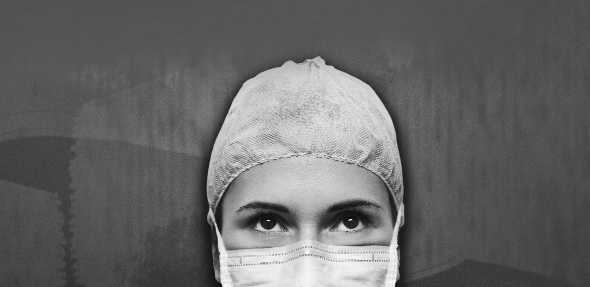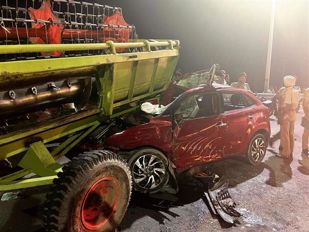
Medical experts fear Dehradun-Haridwar could well emerge as the new hub of illegal kidney trade in the country.
Neena Sharma in Dehradun
Illegal trade in human organs is a national shame that recurs with an alarming frequency across the country. Of all such illegal surgeries, the kidney theft seems most common, in a country where about 2,20,000 people annually require kidney transplantation, according to the Indian Journal of Urology. In 2015, only 7,500 kidney transplantations were performed at 250 kidney transplant centres. Of these, 90% come from living donors and only 10% from deceased donors. The journal says data are not accurate in the absence of a national transplant registry.
So, when reports came in about the latest kidney racket near Dehradun, experts again called for an urgent need for a transparent organ donation policy. Around middle of this month, the Uttarakhand Police stumbled upon the racket at Gangotri Charitable Hospital located between Haridwar and Dehradun. Medical experts fear Dehradun-Haridwar could well emerge as the new hub of illegal kidney trade.
The key players continue to be impoverished men and women ready to trade their kidneys for a price. The police said the racket could have continued had the two voluntary donors not got into an argument about payments with the middle man.
“The accused came from West Bengal and Gujarat after they were promised money in exchange for their kidneys. They may have come willingly, but soon turned victims as they did not receive the promised money,” says Nivedita Kukreti, SSP Dehradun
There is a law with an elaborate process of documentation, compatibility test and psychiatric evaluation before the kidney can be retrieved from a donor. “According to the law, doctors can perform such a surgery only after establishing that either the donor is a blood-relative of the patient or that kidney was taken from a cadaver. Two sets of committees should scrutinize the related and unrelated donor. These curbs were introduced to prevent rackets,” says Dr RP Bhatt, former DG, Uttarakhand Department of Health. Dr Amit Raut, the man behind the racket, has been arrested.
The provisions in the Transplantation of Human Organs and Tissues Act, allowing persons unrelated to patients to donate organs out of “love and affection,” are being exploited by unscrupulous persons. Poor men and women are lured into becoming illegal donors in return for money. As there is an acute shortage of organs in India, laws are being subverted, especially in severe conditions. “Desperation drives patients and their family members to fix things up. The middle men seize the opportunity to build a network,” says Dr TC Pant, CMO, Dehradun district.
He said organ donation is yet to catch up in the country. “An awareness campaign needs to be launched to encourage donation, for example, accident victims’ organs should be used. This way, it would be easier to obtain organs,” says Dr Pant.
There is also a need to tighten surveillance. Soon after the kidney racket was unearthed, the medical team that visited the site was shocked to find that though the hospital had all the facilities on paper, it was shown as a general hospital. “The size and scale of the infrastructure that was shown in the hospital could not have gone undetected. From all accounts it looked like a specialty hospital. This racket could not have gone undetected but for the patronage from influential persons,” says Dr Bhatt.
Contrary to general perception, the kidney extraction and transplantation procedure of this kind is not elaborate. “It can be performed by a general surgeon. The hospital had no surgeon, only a BAMS qualified doctor who was allegedly conducting the surgeries,” says Dr Harish Basera, senior physician Doon Medical College Hospital.
There has not been any check on unqualified doctors. It is believed that facing heat elsewhere, Dr Amit Raut, the key accused, was looking for havens to spread his network. “Dehradun and Haridwar fitted the bill because of the floating population of migrant workers,” says the Dehradun SSP.
The state police had no inkling about the racket. “We stumbled upon it… we had no concrete information. Our constables played a key role in gathering information,” says VK Krishna Kumar, SSP, Haridwar.



























